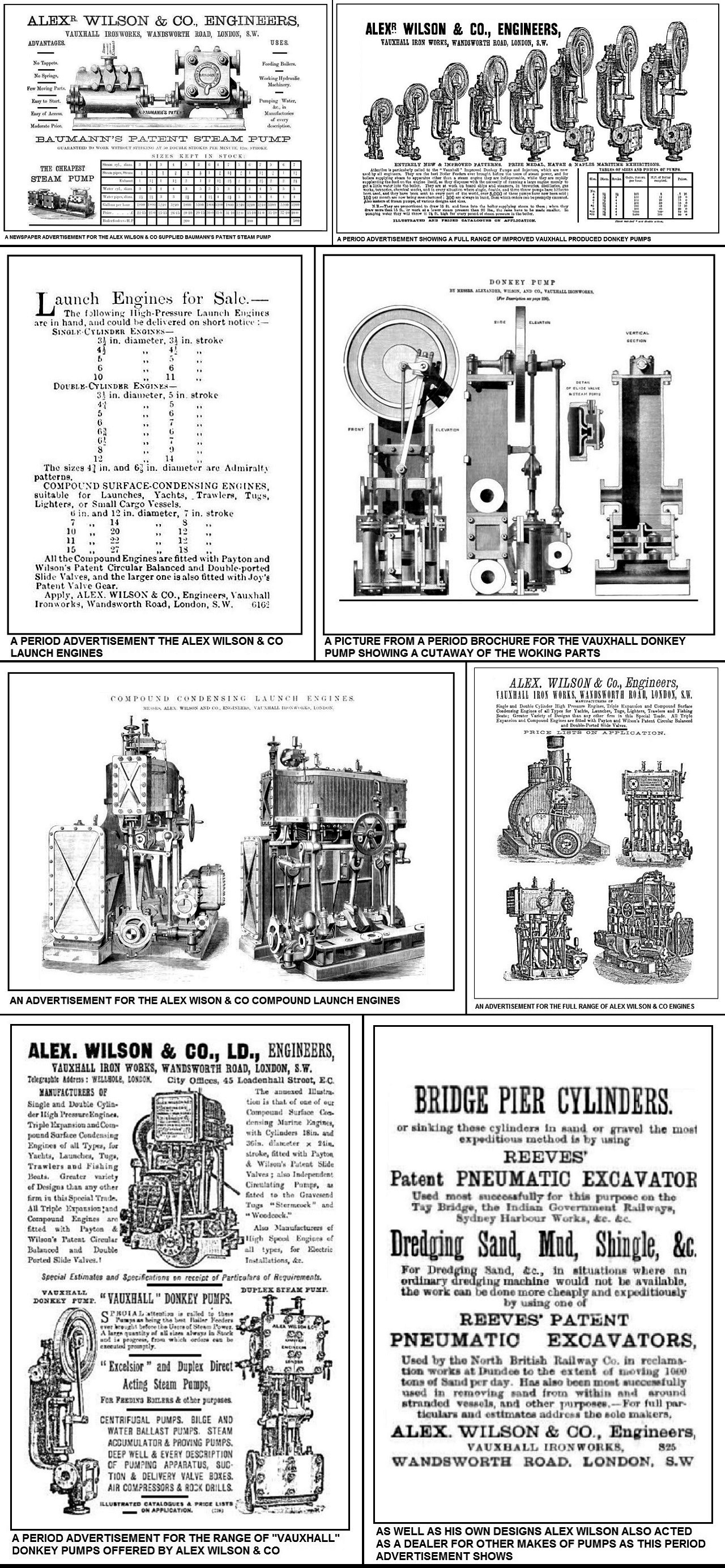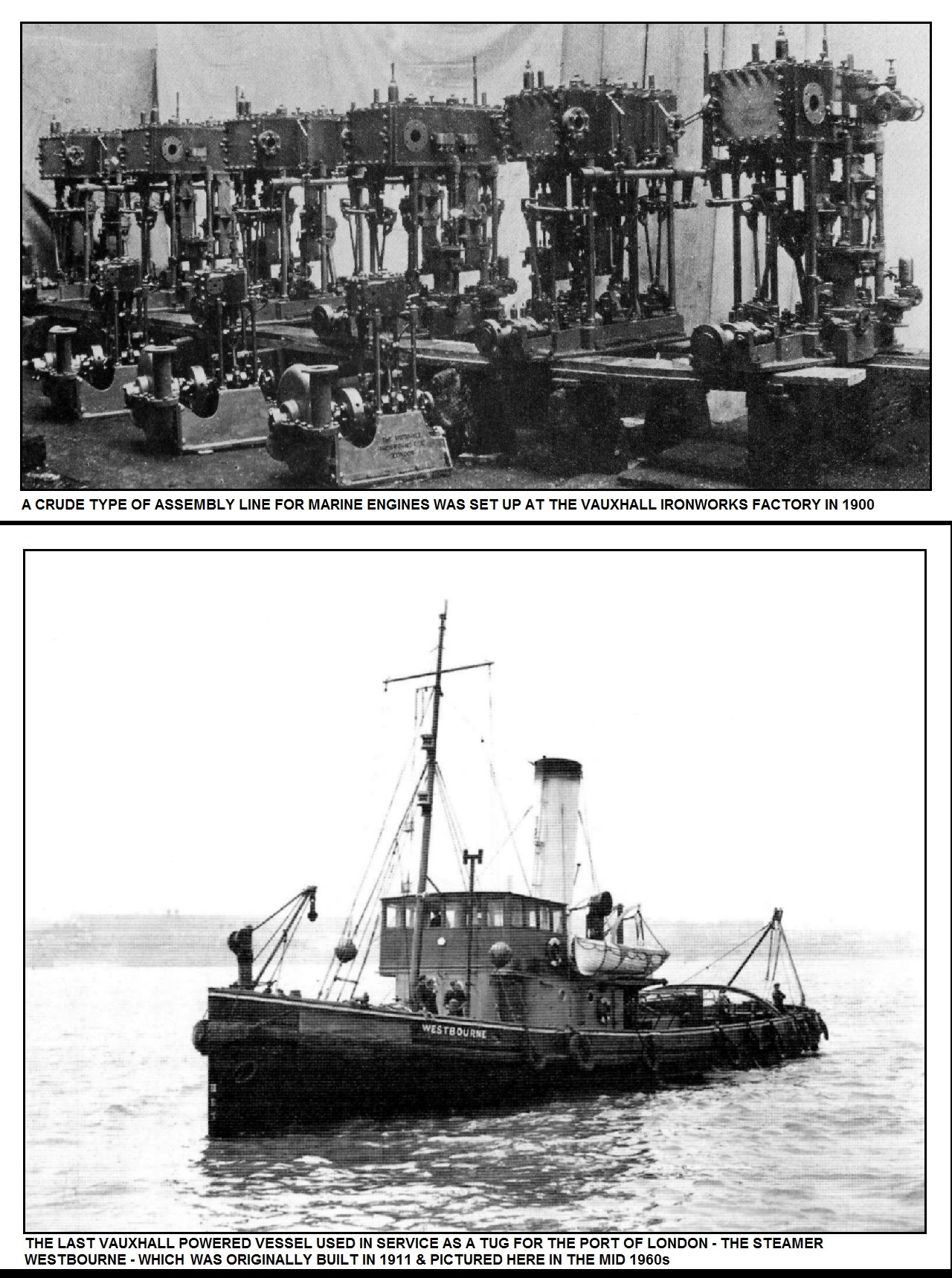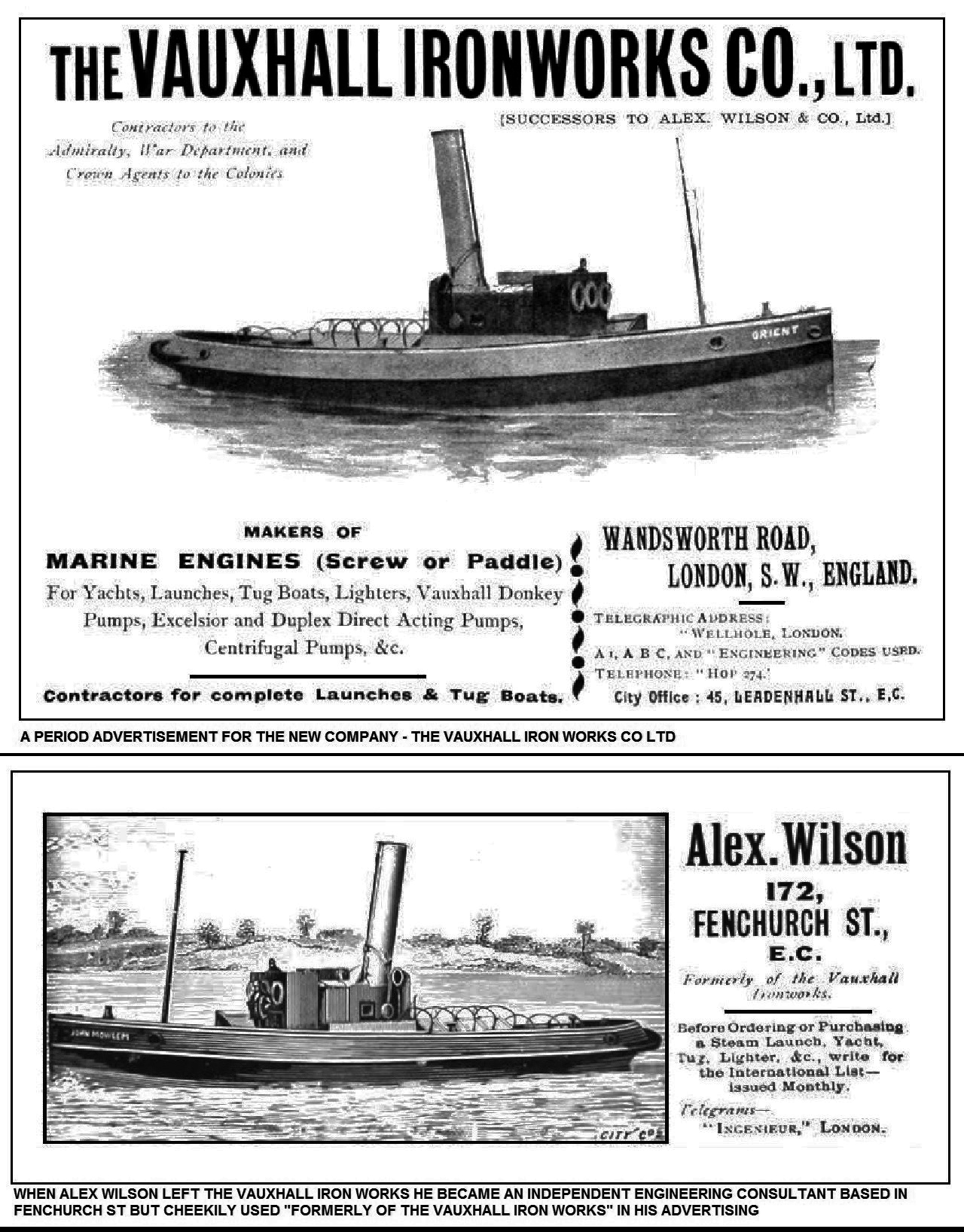
1. COMPANY FOUNDATION & OPERATION UNDER ALEXANDER
WILSON:
In 1857 a talented Scottish engineer, Mr Alexander Wilson, founded a small business for the manufacture and sale of steam engines, boilers, pumps and hoists primarily, but not exclusively, for marine applications The business was located in a yard with workshops at 92 Wandsworth Road, close to The Vauxhall Gardens & Vauxhall Bridge and soon became well known locally as the Vauxhall Iron Works and was adopted as the official postal address. Trading as Alexander Wilson & Co he soon acquired a well-deserved reputation for engineering expertise, imaginative designs and very high quality of manufacture. Much of the products offered were designed by Wilson himself and some items, such as the boiler feed pump, were actually patented by Wilson. Initially his two main products were small, high pressure pumps for Admiralty pinnacles, and compound and triple expansion engines for use in river tugs, Wilson was also successful in being awarded a number of Admiralty contracts. By the 1860s the company was exporting its marine products and even won awards at the Le Havre Exhibition in 1868 and in Naples three years later. Engines were also manufactured for side paddle and stern wheeler ships and were fitted to two well-known river pleasure steamers of the 1890s – the “Queen Elizabeth” and “Cardinal Wolsey” which were employed plying between Westminster and Hampton Court. By the 1880s the Company had expanded to employ some 150 people, many of whom were highly skilled engineers as well as some young apprentices, and the company had diversified into many other products. These included a range of 12 different sized donkey pumps for boiler feeding. Added to this was the manufacture of “Lightfoot” dry air refrigerating plants used in the production of artificial ice & cold storage. Alex Wilson was also prepared to undertake any other work which interested him & he even had ideas on accident prevention: His “Excelsior” stream driven pump, of horizontal design with valve gears operated by triggers at each end of the power stroke, had no unprotected moving parts. This rapid expansion also had adverse side effects – a perpetual shortage of working space – this forced Wilson to rent additional storage space in a yard behind the public house next door to the Iron Works.
Alex Wilson
was, according to his employees & as matter of record, a much
better engineer than he was an accountant. His office desk was
usually covered by a mass of papers,invoices and quotations;
workers and the office cleaner were given strict instructions that
on no account were any papers to be disturbed, especially during
any office cleaning. The backs of letters and old envelopes were
often used for making notes and estimates and then stuffed in his
pockets for future
reference.



